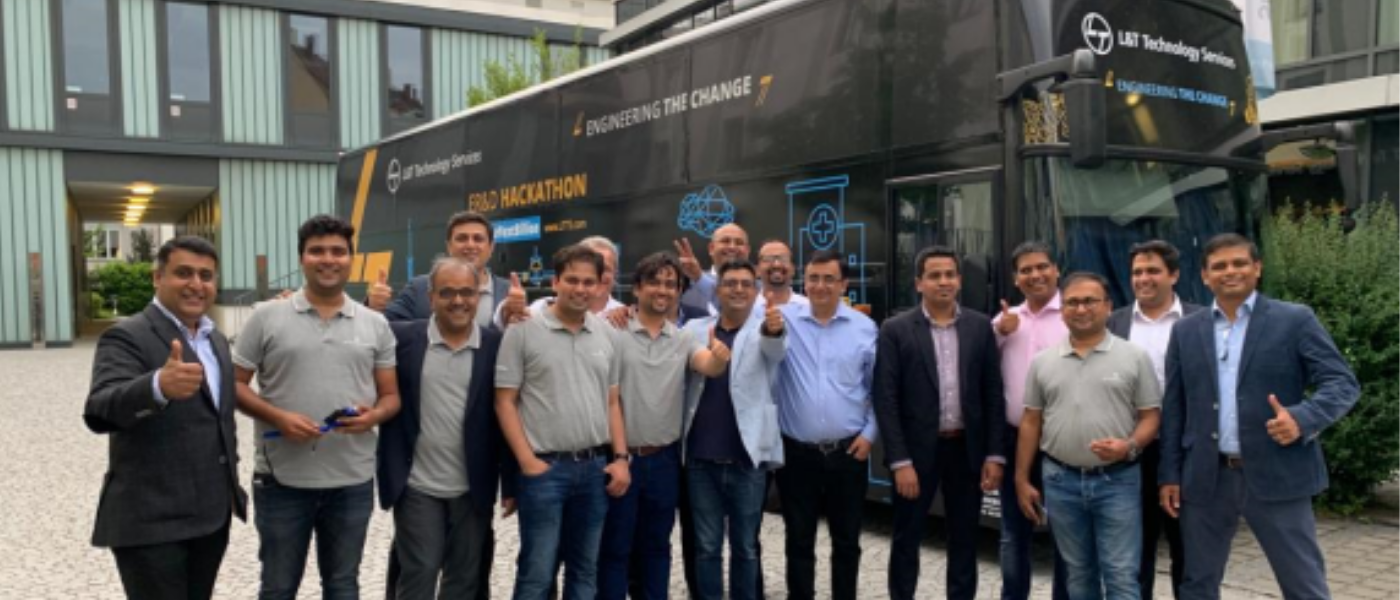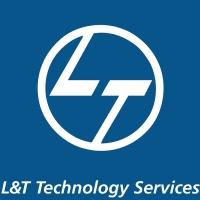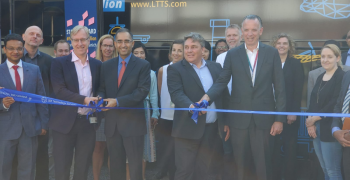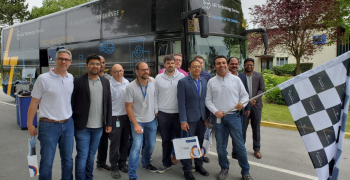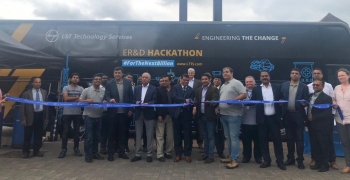Epic Journey Concludes: Takeaways from the ER&D Bus Tour and Hackathon
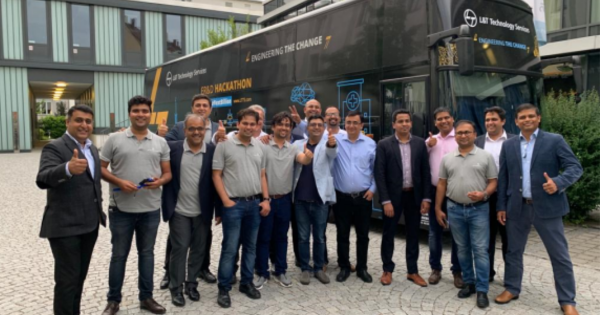
Europe is emerging as the next technology powerhouse. Birthplace of the original Industrial Revolution, the Continent is reawakening to its potential as the premier destination for technology, and seems set to drive the changes that would define the roadmap for the Fourth Industrial Revolution.
Our ER&D Hackathon & Bus Tour, a 16 day-8 city-3000 Km innovation-on-wheels drive, based on the theme “For the Next Billion”, sought to understand and support this transition. We demonstrated our capabilities in the areas of digital technologies and solutions like IIoT, Digital Twins, cyber security and 5G, and sought to uncover newer, more robust digital solutions. This search for solutions was organized at a 24-hour Hackathon in Munich, the capital of the Federal German State of Bavaria, and the final stop for our journey.
Reliving the Tour: Memories for a Lifetime
We started from Manchester, UK on May 31. The bus then made its way across the English Channel from the Ellesmere Port heading to Amiens, and then to Paris, the Cultural Capital of Europe. The two-day stopover in Paris was a revelation, as the city dazzled us with its industrial and technical prowess, with the majestic Eiffel Tower offering a distinct backdrop for our activities.

The next stop on our journey, Leverkusen, took us across the mighty Rhine, and I could not help but wonder at once how this river had once served as the border for civilization as we knew know it. Leverkusen was a major venue, and our events for the day were conducted in association with Covestro, a leading German materials manufacturer. The interaction with the members of the Press at Leverkusen was another high point, serving to help spread our message of digital innovation with the broadest sections of the public. Following a Brief stopover at Dusseldorf later in the day, it was time to head for Hamburg.
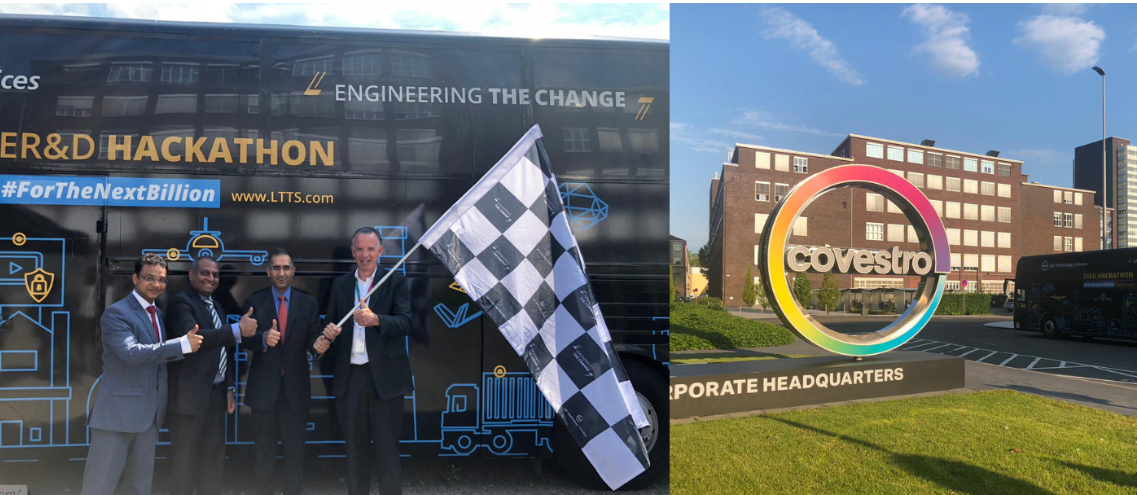
Hamburg, the vibrant riverine port post on the Elbe and the onetime leader of the medieval Hanseatic Trade League, proved to be equally welcoming as all the other cities covered on the tour until then. An eclectic mix of technology, industry, and commerce seemed to be the city’s lifeblood, and we were excited at the level of interactions that we had with its residents at our venue, the Deichtorhallen Museum.
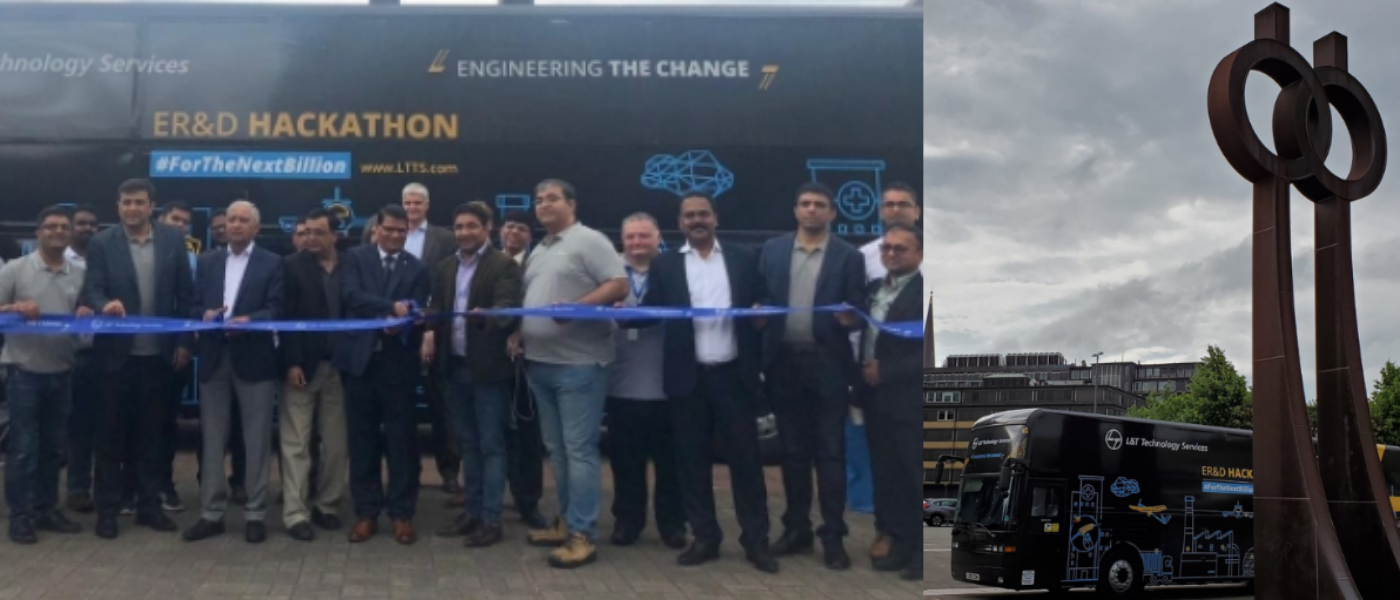
Following Hamburg, we headed towards Frankfurt, the financial powerhouse of Germany and Europe. The city dazzled us with its opulence (and a marked preponderance of skyscrapers), and underscored the fact that technology innovations would need to be economically viable to find widespread acceptance.
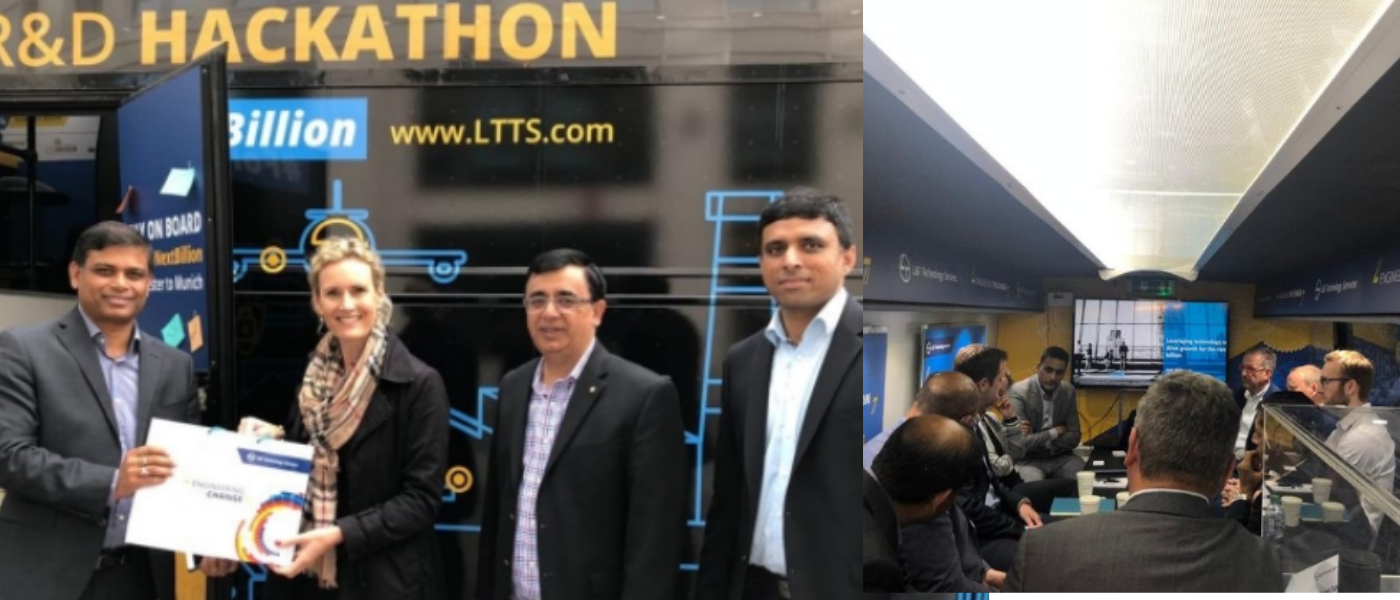
The penultimate stop on the tour, Eindhoven, is a quaint Dutch town located in Southern Netherlands. The city was the original home of Phillips, the light bulb pioneers, and today, continues to be a major hub for innovation and research in the region.
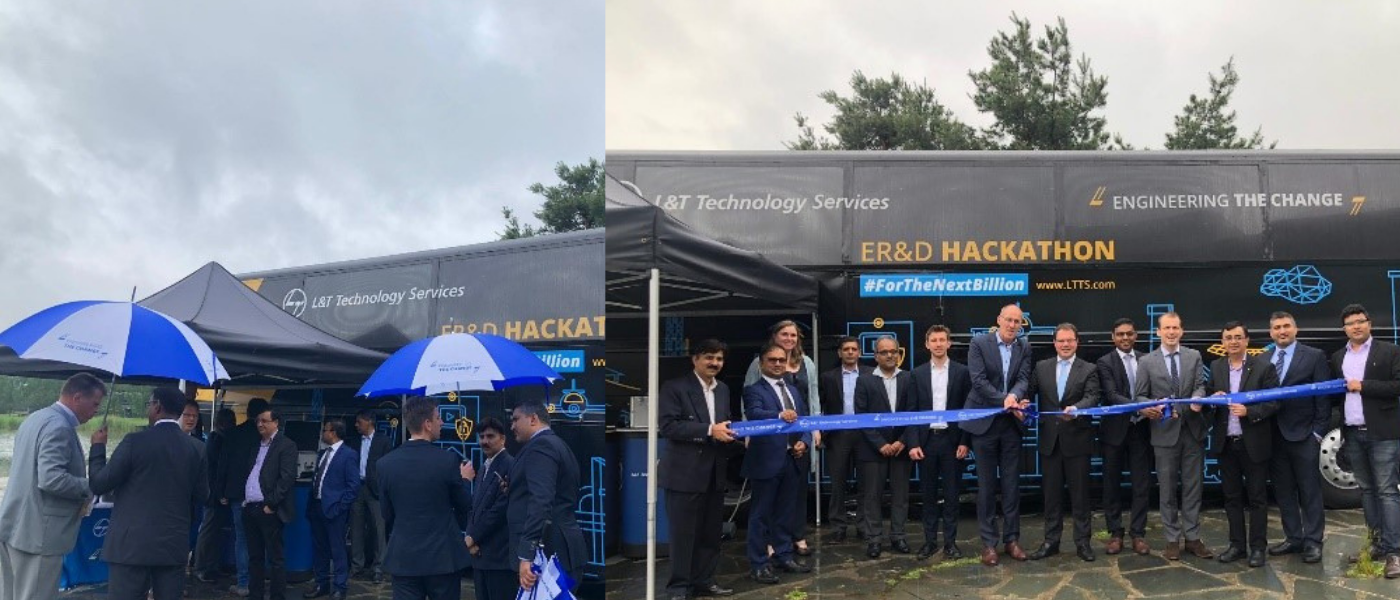
Munich, our final stop on the ER&D Hackathon and Bus Tour, needs no further introduction. Home to several major German industrial entities and a city that quite regularly features as one of the most desirable places globally to live in, it was the perfect setting for our ER&D Hackathon.
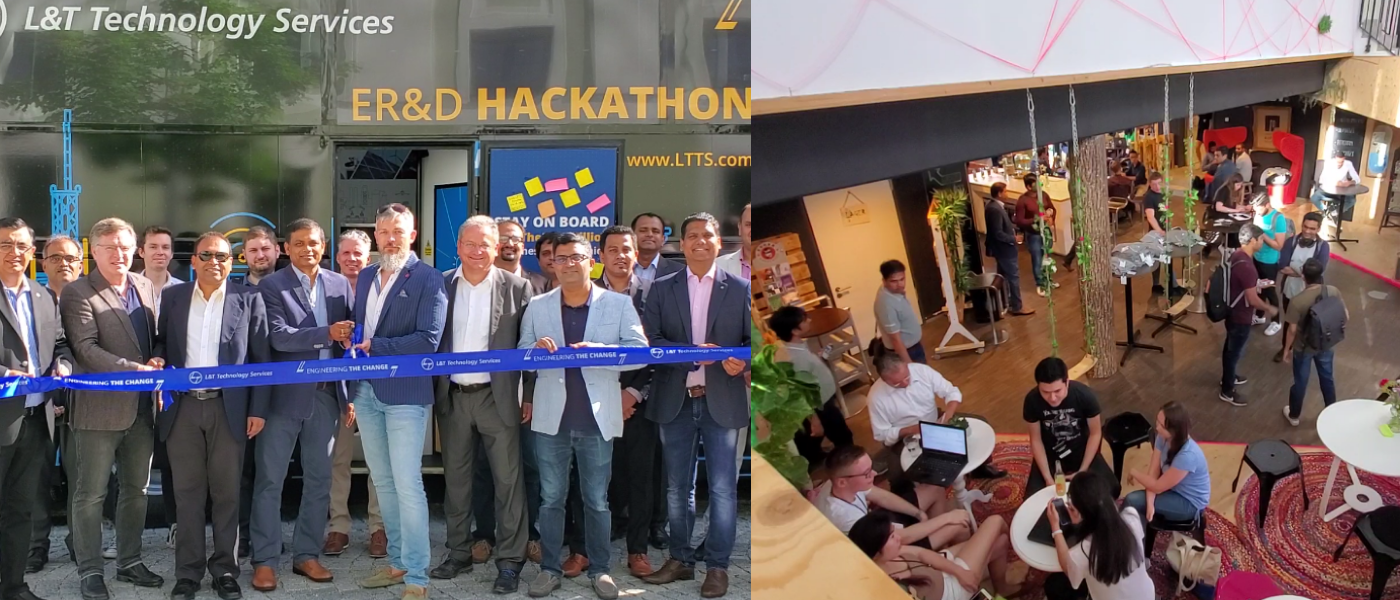
The ER&D Hackathon
The 24-hour ER&D Hackathon was the highlight and fitting finale of the tour. 17 teams tackled complex industrial challenges related to a host of topics including:
- Factories of the Future, with an aim of reducing workplace risks and potential errors by leveraging AR/VR.
- Mobility Solutions, for minimizing traffic congestion in cities using AI & ML, and,
- Maintenance, Repair, and Overhaul (MRO) for increasing operational efficiency of aircrafts using Data Analytics.
- AR solutionsto improve the way patients and staff navigates efficiently in large hospitals
Almost 43% of the contestants comprised of technology professionals and freelancers, while a healthy 30% were from the startup ecosystem. Students too participated in the event, which was ultimately won by the Munich-based collective, Intellight. The winners took home the top prize of 10,000 Euros for their traffic management solution, which uses deep learning algorithm to reduce congestion in cities.
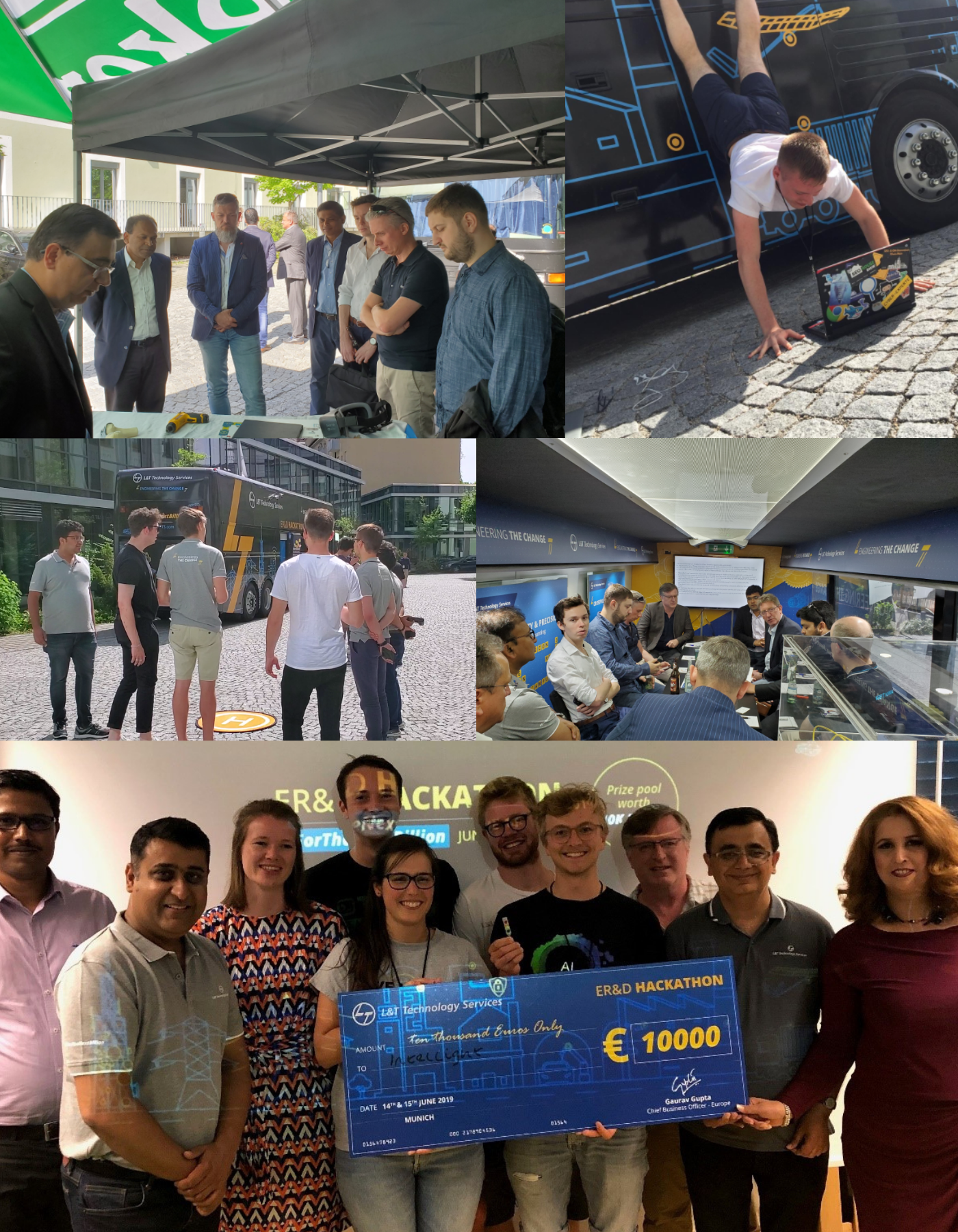
Final Thoughts
230 visitors, including customers, analysts, industry experts, officials, local authorities and engineering students attended our drive from Manchester to Munich. They expressed keen interest in our demonstrations, and participated eagerly at the different idea exchange and round table sessions that were organized along the route.
We feel that this enthusiasm holds the keys for a vibrant and prosperous future – one where we have successfully harnessed technology to alleviate the human existence. And that, is what drives us ahead as we strive to engineer the change for the next billion.
